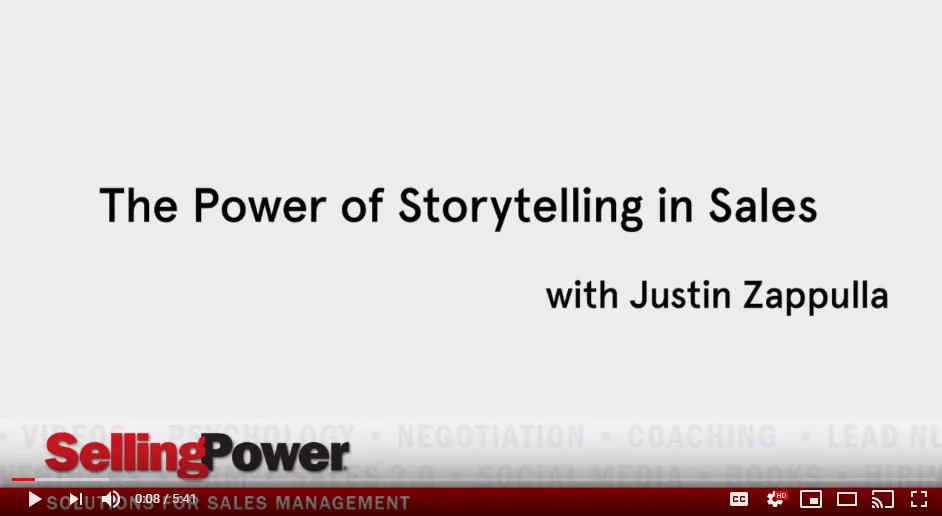Succeed in Sales: Avoid the 3C’s

There once was an international sales conference for the world’s top sales performers. Only the best of the best received an invite to this prestigious event. The highlight of the sales conference was an evening yacht ride to Success Island. As the yacht pulled away from its mooring, one salesperson was racing down the dock. The high-performing sales professionals already on the yacht yelled, “You got this. You can do it. Jump for it.” So, the sales straggler dove headfirst into the water and began swimming, with all his energy, toward the yacht.
Very quickly the sales straggler started to get very tired and began to sink. As he struggled to keep his head above water, he heard the high-performing sales professionals yelling, “You can do this. Don’t stop. Dump the junk.” At that point, the sales straggler became aware of the backpack he always carried with him. Inside his backpack he kept all his old junk–criticizing, complaining, and comparing. He became so used to carrying his junk that he forgot it was there. But he soon realized if he wanted to catch the other high sales performers on the yacht and make it to Success Island, he’d have to dump the junk.
As soon as he dumped all his old junk, he began swimming faster and soon caught the yacht. Once on board, he looked over his shoulder and saw another swimmer in the water, struggling. From the top of his lungs, he was the first to yell, “Dump the Junk.”
How do you drown? Gradually, then suddenly. These are lines from the novel by Ernest Hemingway, The Sun Also Rises. Hemingway provides an insightful look at the progression of failure. In sales, and in life, we seldom succeed or fail suddenly. Both are gradual progressions. When trying to succeed in sales, sometimes the best strategy is to dump the junk. That is because often, the best way to increase your probability of success, is to decrease your probability of failure. In this article, we explore these three deadly habits, criticizing, complaining, and comparing, that progressively lead to sales failure, and how sales professionals can overcome each to avoid failure.
Achieve Sales Success by Avoiding Failure
In sales, is it possible to achieve success by avoiding failure? Most sales training is laser-focused on strategies, tactics, and behaviors to achieve desired sales outcomes. For example, follow this sales methodology, perform these steps in the sales process, and use these sales techniques, and your sales success becomes predictable. However, because modern selling is extremely complex and exact predictions can be dangerous. If you work in sales, you work in probabilities, not certainties. We can increase our probability of sales success by avoiding the primary saboteurs of success–criticizing, complaining, and comparing.
As sales professionals, we all have our bad days. But sometimes those days turn into weeks, which turn into months, which becomes a quarter and eventually failure. As sales trainers, we have provided sales assessments and sales training to thousands of individuals and hundreds of companies worldwide. The one thing that has become crystal clear from all these interactions is that high performing salespeople think differently than average performing salespeople. How differently do high-performers think? Only slightly, but the impact on performance can be massive. High performers respond to negative outcomes differently.
Let’s return to the swimmer in the water scenario. A natural reaction is to swim harder, but this quickly leads to physical exhaustion. At times, sales can feel like a sink or swim situation, where working harder only results in exhaustion. No one started their sales career with the goal of drowning. We all want to enjoy the ride to Success Island. If we don’t succeed in sales, it’s not because we weren’t smart enough or lacked the necessary physical skills. It’s also unlikely we didn’t work hard enough. It’s more often because the energy vampires of criticizing, complaining, and comparing wore us down on our way to Success Island.
In sales, like in a water survival situation, people who help themselves are rewarded. They say water survival is 90% mental and only 10% physical. The best of the best in sales are not working 90% harder than everyone else. They are thinking and responding to adversity differently. They catch themselves before they slip into a negative mindset. Said another way, they unchained their brain and dumped the junk.
We’re in sales, we will win some and we will lose some. Even for the best of us the 3C’s will creep into our thought process. We’ll see a competitor win the account we worked on for months and it’s easy to complain. We will watch a colleague get promoted to sales management before us, and we compare our situation to theirs. When adversity hits, we have an opportunity to make a deliberate choice. We can move forward without criticizing, complaining, or comparing, or we can go down the rabbit hole and wonder why the sales gods are against us. However, once the 3C’s infiltrate our thought process, we start the sinking and thinking. It looks like this:
- Getting frustrated
- Overgeneralizing
- Jumping to conclusions
- Ignoring the positive
- Pointing fingers
The longer we hold onto our old junk, the longer it will take us to get to Success Island. The high performers in sales are able to dump the junk faster than other performers. In other words, they learned to drown-proof themselves from adversity. As sales coaches and trainers, we see this often. We start a group sales training with veterans and new hires. The new hires have no junk in their backpack and embrace the training. Many veterans on the other hand come to the training thinking it’s not them, but a tough economy, inflation, or supply chain issues that hinder their progress. Once they see the value in dumping the junk, they start to move forward faster. In fact, the change usually occurs before the first class has ended. It is the difference between focusing on winning versus focusing on excellence.
Dumping the junk is not free. There is a price that sales professionals have to pay. It includes challenging our old thinking, changing our old behaviors, and maintaining a winner’s attitude. In other words, we are committed to excellence and know that winning will take care of itself when we do. Success is a daily process that starts with not failing. When we avoid criticizing, complaining, and comparing, we are less likely to get stuck in the thinking patterns that lead to failure.
For example, how often have you seen a superstar become bitter at the very franchise that took a chance and drafted him initially? It happens so regularly it has become expected. Just look at professional sports teams and see how a late-round draft pick grew into a superstar, and then held out for more money, became frustrated, and left the franchise that drafted him, only to end up making less money with a different team. If you look at the progression, you will find that the 3C’s infiltrated the players thinking.
To become the sales professional we hope to become, we must learn to remove criticizing, complaining, and comparing from our thought process. No matter how skilled we become or how much experience we acquire, we can all struggle in sales from time to time. Top sales professionals have learned not to let the 3C’s drown them on their way to Success Island. Average sales performers wait until they have almost drowned until they let go of the 3C’s. One fundamental truth about selling is that our sales performance will become more productive when we learn to rid ourselves of destructive thought patterns.

- Account Planning (11)
- Awards (50)
- Client Testimonial (37)
- Personal Branding (19)
- Podcast (11)
- Research (68)
- Sales Career Development (85)
- Sales Coaching (153)
- Sales Consulting (133)
- Sales Culture (164)
- Sales Enablement (340)
- Sales Leadership (108)
- Sales Management (242)
- Sales Negotiation (16)
- Sales Prospecting (124)
- Sales Role-Playing (18)
- Sales Training (229)
- Selling Strategies (255)
- Soft Skills (67)
- Talent Management (92)
- Trusted Advisor (27)
- Virtual Selling (41)
- Webinar (10)





























